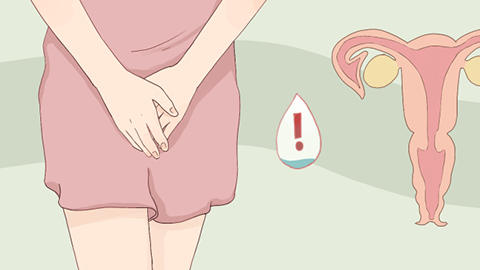What could cause a fishy odor and dampness in the lower body?
Moisture and a fishy odor in the genital area may be caused by inadequate hygiene, increased physiological discharge, bacterial vaginosis, trichomoniasis, cervicitis, or other conditions. Symptoms can be improved through better hygiene practices, adjustments in personal care, and medical treatment. If the odor persists or is accompanied by itching or abnormal bleeding, prompt medical attention is recommended.
1. Poor Hygiene: Failure to clean the external genital area regularly can lead to accumulation of secretions and sweat, promoting bacterial growth and resulting in moisture and a fishy smell. It is recommended to wash the vulva daily with warm water, change cotton underwear frequently, and keep the area dry and well-ventilated.
2. Increased Physiological Discharge: Fluctuations in estrogen levels during ovulation or around menstruation can increase vaginal discharge. If not properly managed, this can encourage bacterial growth and cause a fishy odor. It is advisable to change sanitary pads frequently, avoid wearing tight, non-breathable clothing, and minimize discharge buildup.

3. Bacterial Vaginosis: An imbalance in vaginal flora leads to overgrowth of anaerobic bacteria, causing infection. This results in increased grayish-white discharge with a strong fishy odor. Under medical guidance, patients may use medications such as metronidazole vaginal suppositories, tinidazole vaginal suppositories, or clindamycin cream to relieve symptoms.
4. Trichomoniasis: Infection with *Trichomonas vaginalis* causes inflammation, producing frothy, yellow-green discharge in large amounts with a fishy odor, often accompanied by vulvar itching. Treatment under medical supervision may include metronidazole vaginal effervescent tablets, tinidazole tablets, or ornidazole capsules to alleviate discomfort.
5. Cervicitis: Bacterial infection of the cervix causes inflammatory symptoms, including purulent discharge with a fishy odor. Some patients may experience post-coital bleeding. As directed by a physician, medications such as Baofukang suppositories, cefixime dispersible tablets, or azithromycin dispersible tablets may be used to improve symptoms.
Maintain cleanliness and dryness of the vulva, wear cotton, breathable underwear, follow a light diet avoiding spicy and irritating foods, engage in moderate exercise to boost immunity, and abstain from sexual activity during episodes of bleeding or active inflammation.




